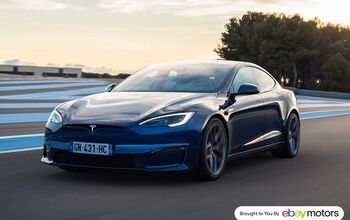38 Views
If and When French Cars Return to America, Thank Canada

by
Steph Willems
(IC: employee)
Published: May 9th, 2018
Share
While French automaker PSA Group’s newly created North American headquarters resides in the warm, sunny South (Atlanta, to be exact), PSA North America CEO Larry Dominique’s mind often turns to that frosty land to the north.That’s where PSA, maker of Citroën, Peugeot, and DS vehicles, feels it can gain a firm foothold once it begins shipping its vehicles to North America. A decade-long re-entry plan is already underway, but French car aficionados must first make do with the company’s mobility services. Real, actual cars will follow, and Dominique sees Eastern Canada as key part of the company’s plan.

Steph Willems
More by Steph Willems
Published May 9th, 2018 1:07 PM
Latest Car Reviews
Read moreLatest Product Reviews
Read moreRecent Comments
- EBFlex With the days supply of inventory Stellantis may welcome a strike
- Bd2 Oh, the emptiness overfills this citySo you'll be queen tonightAs you overthrow, looking pale and pretty
- Daniel J I generally love colors outside of the normal white, black, or silver. The biggest issue we've had is Mazda tends not to put the colors we want with the trim or interior we want.
- Daniel J If you believe what Elon says, he said on X that the plan is expand at current locations and make sure that the current chargers are being maintained. Like I said on the previous thread on this, they probably looked at the numbers and realized that new chargers in new places aren't cost effective.
- Daniel J How is this different than a fully lifted truck? I see trucks rolling off the lot with the back lifted already, and then folks get the front lifted to match. Are there specific "metrics" at how high they can and can't be? The example shown has the truck's front lifted more than normal, but I've seen these around here where the backend is dropped and the front end is at a regular height.


































Comments
Join the conversation
They better be planning on buying or building some beefier engines, because most of those frenchies have less displacement than a sixer of bud.
I could go for a DS model. They look like a Studebaker Hawk stretch limo.